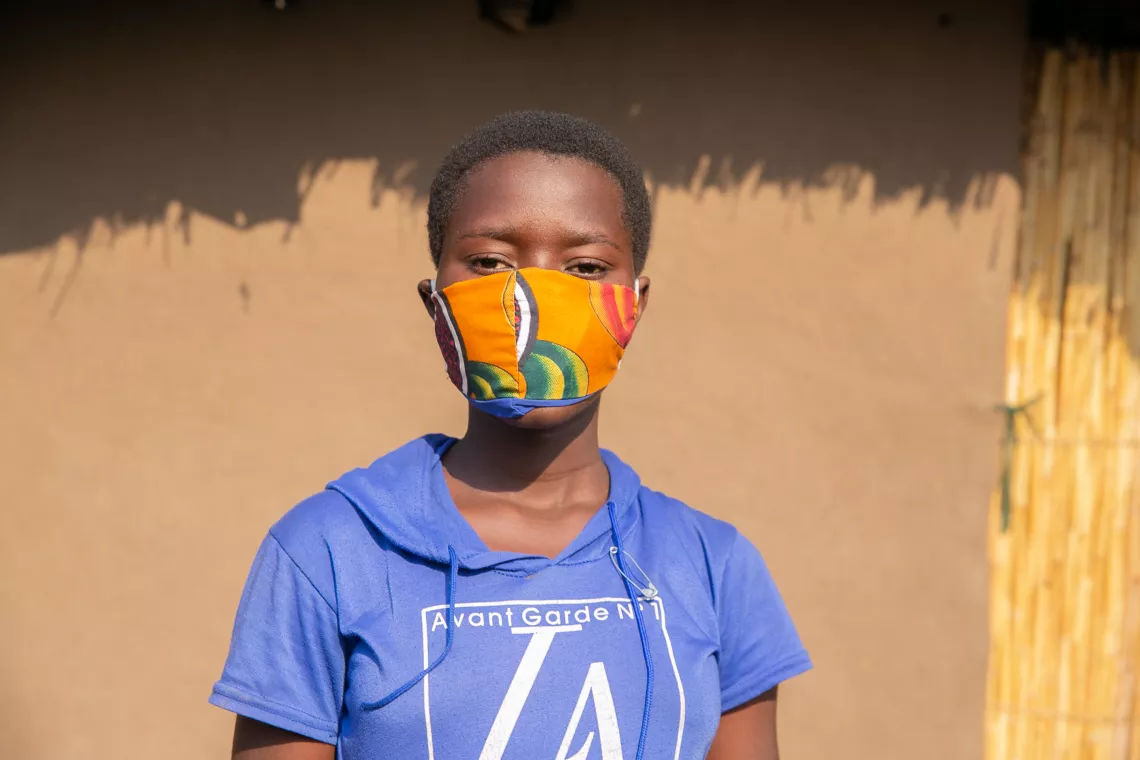The radio: Set to serve beyond COVID-19
How radio's are helping vulnerable children with their education

The rainy season is always considered the rebirth of a new spell of hope to most people in Pemba Village in Salima. The lakeshore district is home to 16-year-old Amina White who is in Standard five at Pemba LEA Primary School of the area.
Amina was born with a deformity around her left ankle which necessitated the amputation of her leg. When she became of age, she started using an artificial leg to help her get around more easily. The artificial leg has however proven to be a challenge during rainy season as she has to be indoors to ensure that it does not get soaked in rains.
“I walk slightly over two kilometres to school from home, and whenever rains catch up with me it is not easy to use the artificial limb in mud. It gets stuck and slows my movement,” she says.
It is for this reason that the administration of Pemba school picked her, and two of her peers with different disabilities, to be recipients of solar powered radios, that enabled continuity of learning through radio during the COVID-19 influenced break.
On March 20, this year, Government closed schools as part of measures to control the spread of Coronavirus when former President Peter Mutharika declared Malawi a State of Disaster.
As part of COVID-19 response in the education sector, the Global Partnership for Education (GPE) provided resources to UNICEF to support the Ministry of Education with education emergency response for COVID-19. The support included the development of learning materials for the radio programme and distance learning for primary school learners.
For the most vulnerable, the grant had a provision of procuring radios that are powered by solar, battery cells and electricity which came to rescue the learners.
Amina says with the radio, she now has shelved her worries of missing out on school lessons during rainy season. Besides waiting for colleagues to bring her notes whenever she misses out, now she will be able to continue learning from the radio as had been the case when school closed.

During school closures, Amina says she was still reading in order to ensure that she does not forget what she had already learned.
“The lessons and other programmes that we listened to on the radio, encouraged us to work hard in school,” says Amina who wants to become a primary school teacher. “I learnt a lot in English, Chichewa and maths, the subjects that I like the most.”
The radio also promoted COVID-19 preventive measures like hand washing with soap, social distancing, among others, she pronounces.
Friendship is what she missed most when schools closed because with her friends, they were able to discuss some lessons that were difficult to comprehend at the time of learning, this was not the case at home.
“This is why I am now excited and ready for school next month,” says Amina who is the last born in a family of 7 where her eldest siling is aged 56.

Her 25-year-old sister Zainab, who is a mother of 3 children, says all of them including their parents are subsistence farmers, however, the little they earn, is not enough to support the needs of the whole family.
“Our parents are very old. Our mother is in her mid-70s and sickly that’s why she is not even here, while our father is in his late 80s and helpless,” she says.
The sister confessed that it is not easy for the siblings to help Amina. She, in fact, survives on handouts from the elderly siblings who also take turns to live with her. The parents live in a shack at their little garden where they cannot even accommodate her.
“Her disability makes the situation even worse,” she says. “But we encourage her to work hard
Now, armed with the radio, Amina won’t get any heavy heart for failing to attend classes during the rainy season, she has a radio to tune in to and learn more as she set her eyes on her ambitious goal of becoming a teacher.




